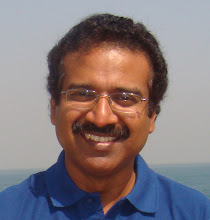- Last friday while playing cricket I went in to bat when the team had lost a few wickets and nine runs were needed in some 15 odd balls. A ball on the legside took the thinnest of edges while I tried to glance it and the wicketkeeper took a clean catch. I should have walked but I hesitated. The wicketkeeper had not heard the nick and also the bowler did not appeal. Meanwhile the batsman at the non striker's end had taken a few steps down the pitch. The wicketkeeper saw this as a run out opportunity and threw the ball hard at the bowlers end. The fielders backing up were not prepared and the ball went for overthrows. After that we won easily. I know I should have walked but then nobody had appealed or noticed and if I had walked it would have become tough for the team to win. So I did not walk.
- The again on friday I clicked on the notification on my desktop that said updates are ready to be uploaded. This is a second hand desktop and I had no idea that the operating system is not genuine. Since then I am being reminded time and again that I am working on a software that has failed the genuineness test.
- I have already decided that I will get rid of this desktop but does the fact that I have used it for the past several years make me a cheat?
It is so confusing and difficult to decide.
I stumble on the path to goodness as I find how difficut it is to be honest. I gather myself and do the next best thing. I confess.
But is confession of dishonesty going to change the course of the events that are done and dusted.
It becomes complicated as I struggle with what I should do.
Help me.



